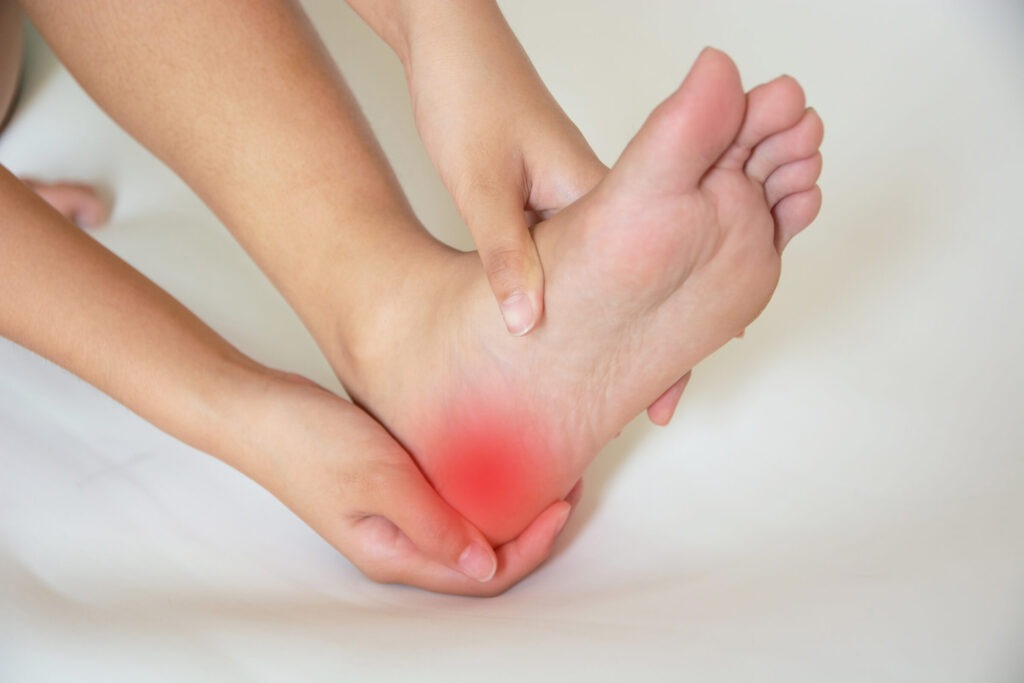Let’s Talk About Plantar Fasciitis
If you’ve ever stepped out of bed in the morning and felt a sharp, stabbing pain in your heel, you’re not alone. One of the most common causes of heel pain we see at South Dublin Podiatry is something called plantar fasciitis, and while it can be frustrating, it’s also very treatable.
What Is Plantar Fasciitis?
There’s a thick band of tissue along the bottom of your foot called the plantar fascia. It connects your heel bone to your toes and acts like a shock absorber every time you take a step.
But when that tissue gets overstretched or stressed too much—think long hours on your feet, unsupportive shoes, or a sudden increase in activity—it can become irritated or even develop tiny tears. That’s when the pain kicks in.
What Does It Feel Like?
Most people describe plantar fasciitis as a sharp pain in the heel, especially:
- First thing in the morning
- After sitting for a while and then standing up
- After a long day of walking or standing
Oddly enough, the pain often eases up once you start moving around, but it can come back later in the day.
Who Gets It?
You might be at risk if:
- You’re on your feet a lot (nurses, teachers, retail workers, etc.)
- You have flat feet or high arches
- You’re a runner or recently upped your workout intensity
- You’re wearing shoes that don’t support your arches
- You’re carrying extra weight, which puts more stress on your feet
So, What Can You Do About It?
The good news is that in most cases can be treated without surgery, and you’ll likely start feeling better with the right combination of rest, support, and stretching.
Here are some of the things we recommend:
- Stretching exercises (especially for your calves and arches)
- Supportive shoes or custom orthotics to take pressure off the fascia
- Icing or heating your heel a few times a day to reduce inflammation
- Shockwave therapy or other in-office treatments if needed
Can You Prevent It?
A few simple habits can make a big difference:
- Wear good shoes with arch support (even at home)
- Avoid walking barefoot on hard surfaces
- Stretch your calves and feet regularly
- Ease into new exercise routines
- Try to maintain a healthy weight
If heel pain is sticking around, getting worse, or interfering with your daily life, it’s time to get it checked out. Early treatment makes a big difference, and we’re here to help you find relief and get back on your feet.
If you are concerned about your feet, call us on 01-9012009

